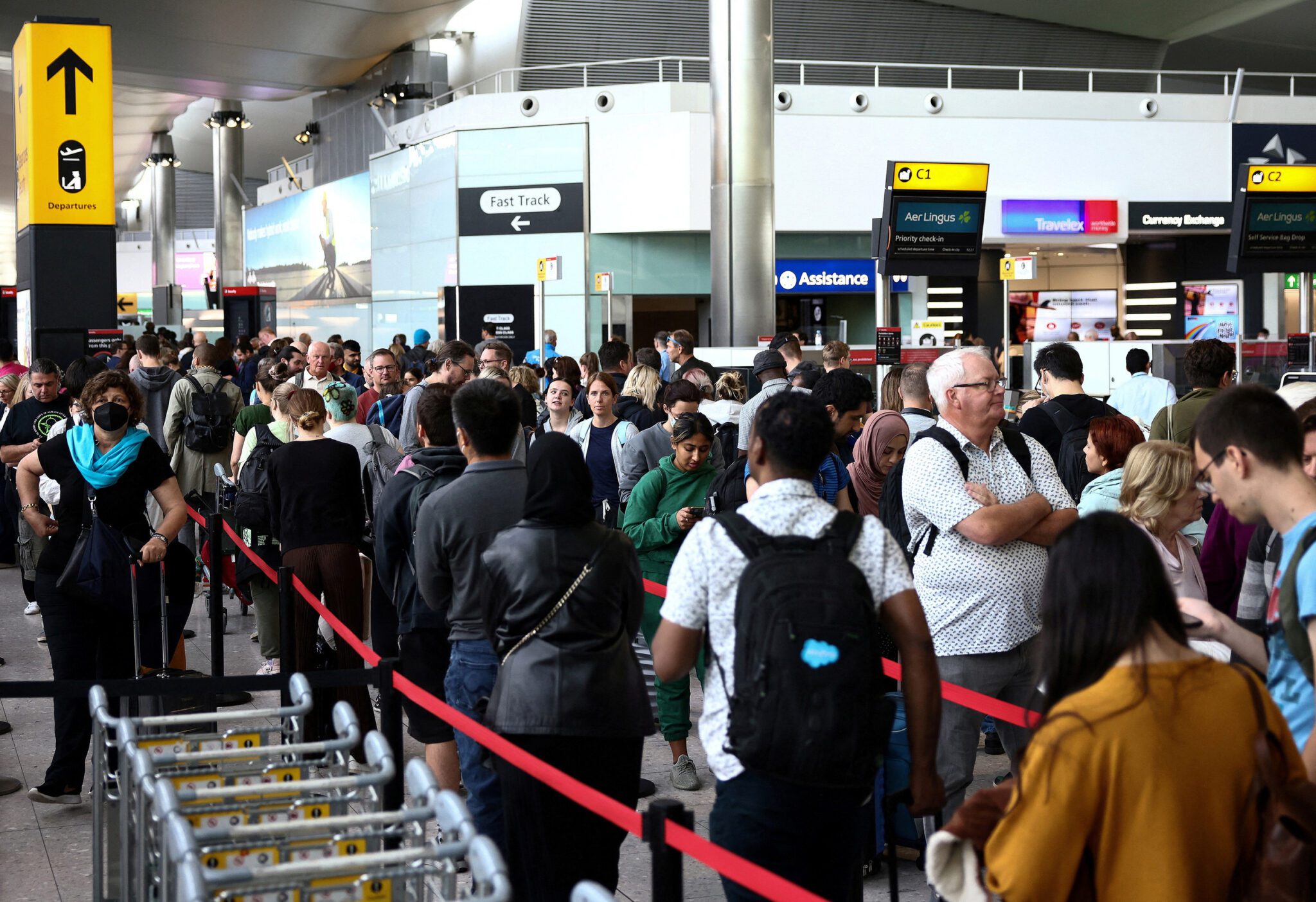Skift Take
The travel industry faces several challenges entering the new year, and here's a list of the biggest ones it faces on its ongoing road to a full recovery.
The travel industry has made enormous progress in its rebound from the pandemic this year, but it still faces several hurdles in its quest to make a full recovery — such as Chinese outbound travel not yet hitting pre-Covid levels.
What are the biggest challenges the travel industry faces? We put that question to Ask Skift, our artificial intelligence chatbot. Ask Skift used information that appeared in our past news coverage and research and we also conducted further reporting on the subject.
Ask Skift said:
The biggest challenges in the travel industry, as of late 2023, include:
Maintaining the demand for luxury leisure: Luxury leisure has been a significant driver of industry performance, but these numbers are reverting to the norm in North America, meaning that the high rates garnered by luxury travel may be lost. There is concern that customer willingness to pay for these experiences may dry up.
The role of AI and hidden fees: Concerns over hidden fees and the price-value paradox of luxury hotels are also significant challenges. The pivotal role of AI in the industry is another point of focus.
Climate change and geopolitical instability: Climate shifts and extreme weather events are leading to unpredictable flight cancellations, travel restrictions, and changes in destination choices. Geopolitical instability also poses significant challenges.
Global economy: The global economic outlook, while improving, is weak, and inflation continues to weigh on economic activity. 45% of industry executives consider the economy the biggest factor in travel disruption for 2024.
Please note that these challenges can vary and evolve over time, so it’s important to stay updated on current industry trends.
Ask Skift Is the AI Chatbot for the Travel Industry
Go deeper into the business of travel with Skift’s new AI chatbot.
What Else You Need to Know
Luxury Demand Still Strong: Advisors at Virtuoso, a network of agencies specializing in luxury travel, say they’ve seen no decrease in demand for exclusive experiences. More than half of its advisors surveyed in its 2024 Virtuoso Luxe Report said they expected travel demand and spending per trip to increase next year.
Misty Belles, Virtuoso vice president for public relations, said in August that high-net-worth travelers are “going from one private experience to another.” Skift reported that month that Virtuoso’s sales from January to June 2023 were 69% higher than in 2019 and 36% higher than in 2022.
Pressure Over Junk Fees: The travel industry has faced growing pressure over the past year to be more transparent regarding pricing, with the Biden administration increasingly taking aim at junk fees. The Federal Trade Commission unveiled a proposed rule in October that would bar businesses — including hotel and lodging companies, short-term rental providers, and car rentals — from charging misleading fees.
While the American Hotel & Lodging Association said that only 6% of U.S. hotels charge resort fees, Skift reported that big hotel chains have been hit with lawsuits in recent years over fees.
AI Tools Could Help: There is optimism throughout the industry that the technology will enhance the customer journey, according to Skift Research’s AI Sentiment Survey Report. Roughly 95% of respondents said the impact of new AI tools on the travel customer journey would be at least “somewhat positive.”
However, close to 60% or respondents among traditional supply segments — such as airlines, accommodation providers, car rental companies, cruise lines and traditional travel agents — said they were at least “somewhat concerned” that AI would disrupt the human touch in travel.
Climate Change Can Change Travel Patterns: A report by the European Travel Commission found the 7.6% of travelers view extreme weather events as a huge concern for trips between June and November. In addition, luxury travel advisors have said soaring temperatures have made cooler destinations, such as Norway and Copenhagen, more appealing to travelers during the summer.
However, Skift reported in August 2023 that extreme weather hasn’t deterred some travelers from visiting destinations associated with scorching heat — such as California’s Death Valley.
Impact From Geopolitical Instability: The Middle East’s tourism industry has been in particular hit hard by war. Tourism to the region had been booming, with international tourist arrivals this year through September 20% above pre-Covid levels. But destinations through Middle East — especially Egypt — have seen a surge in cancellations since the start of the Israel-Hamas war.
And the conflict has upended tourism to Israel, which was struggling even before the start of the war. The Israeli government reported this August that international tourist arrivals were 4%-7% lower than pre-Covid levels.
More From Ask Skift
Ask Skift Is the AI Chatbot for the Travel Industry
Go deeper into the business of travel with Skift’s new AI chatbot.
Skift AI Travel Newsletter
AI coverage across travel sectors that’s focused on separating trendy moves from good ideas – in your inbox every Friday.
Have a confidential tip for Skift? Get in touch
Tags: ai, artificial intelligence, ask skift, climate change, inflation, junk fees, luxury, resort fees, sustainability
Photo credit: A man standing in Italy struggling with the heat. Reuters
